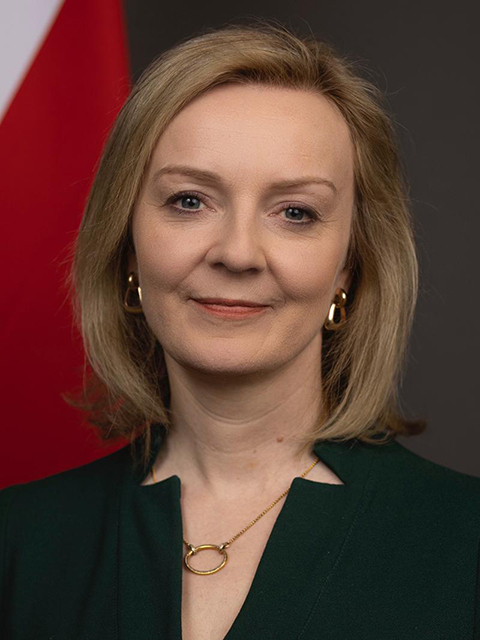PM of the Uneasy Kingdom: Liz Truss’s boosterism won’t help a Britain that matters less globally & is crisis-hit at home
This remains hideously relevant despite being originally published a couple weeks ago, when Liz Truss became Britain’s prime minister. Here’s the full version of the piece:
 Britain has a new girlboss, Liz Truss, but the country’s new, always Insta-ready prime minister has a problem. She speaks the language of relentless boosterism – the upbeat idiom of her predecessor, Boris Johnson – but lacks his charisma and people-pleasing delivery. She offers nostrums – a power fantasy and utopian economic promise – that reprise Britain’s Iron Lady but Truss ain’t no Maggie Thatcher.
Britain has a new girlboss, Liz Truss, but the country’s new, always Insta-ready prime minister has a problem. She speaks the language of relentless boosterism – the upbeat idiom of her predecessor, Boris Johnson – but lacks his charisma and people-pleasing delivery. She offers nostrums – a power fantasy and utopian economic promise – that reprise Britain’s Iron Lady but Truss ain’t no Maggie Thatcher.
In any case, today’s Britain is a world away from the nation that Thatcher decisively (and divisively) put on course for growth in 1980s by drastic privatisations and deregulation. At the weekend, GDP figures from the IMF showed Britain slipping one place below India, which is now the world’s fifth largest economy.
What chance then for Truss, Britain’s third successive PM to be chosen by Conservative Party members rather than the general public, to succeed? Her to-do list is long and daunting.
- It starts with a cost of living crisis that encompasses spiralling energy bills, double-digit inflation, rising mortgage rates and fears of a long recession.
- Meanwhile, public finances are creaky, the National Health Service dangerously overstretched and a rash of strikes is breaking out.
- Postal workers are staying home later this week (September 8 and 9) and trains are mostly grinding to a halt on September 15 and 17, and will be heavily disrupted on September 26.
- Truss will walk into Downing Street on September 6 faced with striking Whitehall cleaners, security guards, reception workers, and porters who are members of a union at the Department for Business, Energy and Industrial Strategy.
- Foreign policy headaches linger on such as the Ukraine war and the consequences of Brexit.
Can Truss make her bespoke cocktail of Boris Boosterism 2.0 and muscular Iron Ladyism work for Britain 2022?
Part of the answer may lie in who Truss, 47, really is, the private individual and her inner voice, as well as the one revealed over the years. By all accounts, the karaoke-loving, espresso-drinking mother of two teenage daughters with accountant husband Hugh O’Leary is a survivalist, not a quitter.
She is ambitious, strong-willed and combative, yet politically malleable enough to go unblushingly from anti-Brexit Remainer in 2016 to full-on born-again Brexiteer as Johnson’s post-Brexit trade secretary in 2019.
This appetite for shapeshifting started early. Born into a left-leaning family, Truss drifted away from the parental political fold. At Oxford University, she took to Liberal Democrat politics with zeal. As a young professional at Shell and Cable & Wireless, she joined the Conservative Party.
Next came years in the political shadows, which ended when she won the safe Conservative parliamentary seat of South West Norfolk and went on to a series of remarkably varied, often stellar government appointments. Truss has had six ministerial jobs under three Conservative PMs, making history, or at least the footnotes, as Britain’s first female lord chancellor, its second female foreign secretary and now, its third woman PM.
Often, this is obscured by her posturing and predilections. There is the Thatcher cosplay – a fur hat in Moscow’s Red Square; astride a British Army Challenger 2 tank in Estonia; wearing a pussy bow blouse; picking a fight over continued independence for the Bank of England; her promise to curb “militant unions”. There is her annoyingly wooden, staccato delivery; her promise to lower taxes and raise public spending, as if a magic money tree really does grow somewhere in the garden of the Truss family home in Greenwich.
Scattered members of the roughly 160,000 Conservative selectorate, who know and like Truss personally and loyally voted for her to be leader, told me they wished the contest had allowed for “more choice”.
It’s gratingly obvious that parts of the world too are wary of Truss, whose rhetoric as foreign secretary rather disregarded Britain’s smaller footprint and uses on the international stage.
- Americans have reportedly found her style as foreign secretary blunt, binary and assertive, her rhetoric outstripping British monetary commitments.
- She is hawkish on China and hardline on Russia.
- In India, which Truss has visited three times as a cabinet minister (including twice as foreign secretary), she has taken a more emollient approach. Meeting her counterpart S Jaishankar in Delhi in March, after India failed to condemn Russia’s invasion of Ukraine and vote against it at the UN, Truss mildly spoke of a “network of liberty”.
- As India and the UK continue to negotiate a free trade agreement, Truss has offered anodyne comment to the effect that deeper ties are key to security in the Indo-Pacific and globally, and to create jobs and opportunities in both countries. If she were posing as a diplomat, she did it well.
Truss is now the new face of self-described “global Britain”, though Britain is, if anything, less “global” than before. For, it is harder for the UK to trade with the European Union and it is no longer the world’s bridge to Europe. As Truss takes charge, Britain is beset by debilitating problems that one woman’s boosterism can neither soothe nor heal.
Originally published at https://timesofindia.indiatimes.com on September 5, 2022.

